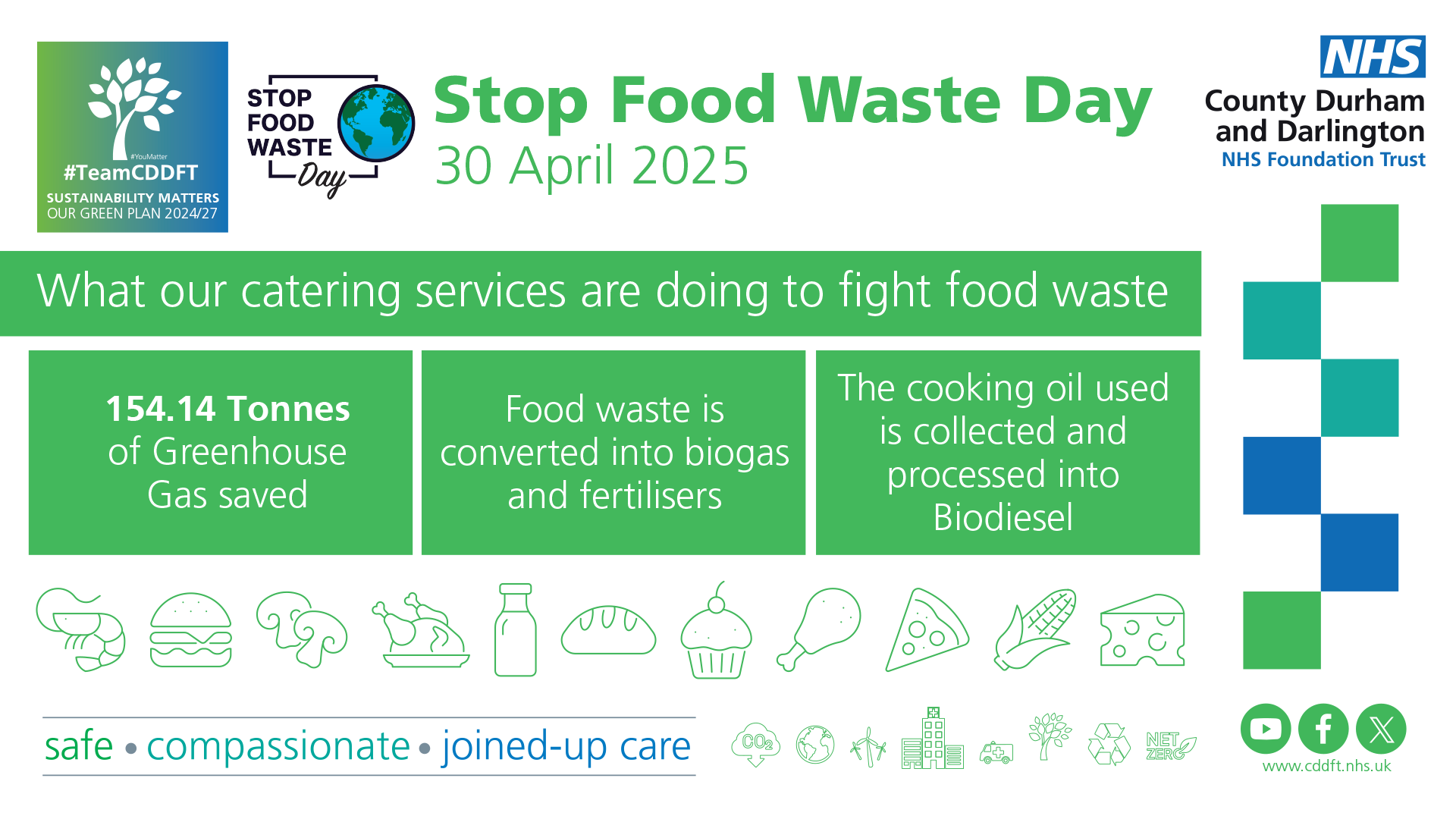At County Durham and Darlington NHS Foundation Trust (CDDFT), our Catering Services are playing a vital role in driving sustainability and supporting our Trust's Green Plan — one plate at a time.
Feeding around 1.5 million meals to patients, visitors, and staff across our hospitals is a huge operation, and with it inevitably comes some food waste.
However, our catering teams have been working hard to reduce waste wherever possible, and where it can't be avoided, ensure it's recycled responsibly.
One of our proudest achievements to date is diverting all food waste away from incineration. Instead of being sent to energy-from-waste facilities, this organic waste has been used in anaerobic digestion — a natural process that converts food waste into biogas and nutrient-rich fertiliser.
The process of anaerobic digestion includes four key stages:
- Hydrolysis – breaking down complex organic matter into simpler compounds
- Acidogenesis – converting those compounds into volatile fatty acids
- Acetogenesis – further breaking down acids into acetic acid, hydrogen, and carbon dioxide
- Methanogenesis – transforming these into methane-rich biogas via specialised bacteria
This process not only generates renewable energy, but also produces fertiliser that supports agricultural use, contributing to a sustainable circular economy.
Through this approach, we have been able to prevent approximately 154.14 tonnes of greenhouse gas emissions — a significant step toward reducing our environmental impact.
While incineration does create energy, it doesn't recover materials in the same way, making our switch to food recycling the greener, smarter choice.
We're also taking action beyond food waste. Used cooking oils from our kitchens are collected and converted into bio-diesel — a renewable alternative to fossil fuels that can power agricultural vehicles and machinery.
Stuart Wray, Head of Catering, County Durham and Darlington NHS Foundation Trust, said: "At County Durham and Darlington NHS Foundation Trust , we're incredibly proud of our steps to reduce food waste and embrace more sustainable practices. Diverting waste from incineration and turning it into renewable energy and fertiliser not only supports our Green Plan, but also shows that even in a high-demand environment like healthcare, we can make choices that benefit both our patients and the planet. It's a real team effort, and it's making a meaningful difference."
In addition to its recycling efforts, our catering services have also been actively reducing food waste through the Too Good To Go App.
Too Good To Go is a global food-saving app that connects businesses with surplus food to consumers looking to rescue meals at a reduced price.
The aim is to combat food waste by allowing cafes, restaurants, supermarkets, and other food providers to sell their unsold food in "Surprise Bags" at the end of the day, preventing it from being thrown away.
CDDFT staff and patients have been benefiting from the initiative.
Over the past year, 1,085 meals have been saved from going to waste, helping to avoid 2.93 tonnes of CO₂e emissions.
This partnership not only supports environmental sustainability by cutting greenhouse gas emissions but also ensures surplus food reaches people rather than landfill.
With more than 589 favourites and nearly 1 million impressions, the initiative is gaining positive traction — showcasing CDDFT's continued commitment to tackling food waste from every angle.
Our commitment to sustainability is more than just waste reduction; it's about making conscious, responsible choices at every level of service.

